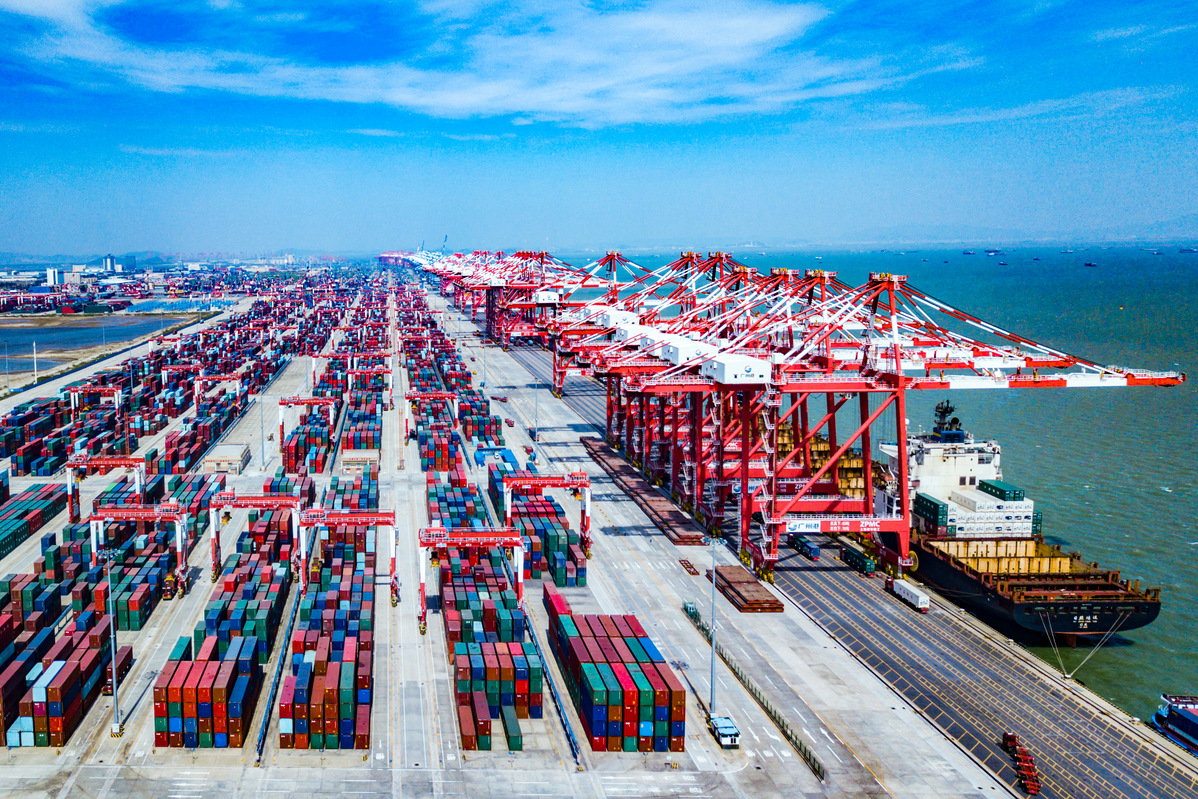
Photo shows a view of Nansha Port in Guangzhou, South China's Guangdong province. [Photo provided to chinadaily.com.cn]
BEIJING - China's cross-border trade and investment became more vibrant in 2024, said an official with the State Administration of Foreign Exchange (SAFE) on Tuesday, quoting official data.
The cross-border receipts and payments by non-banking sectors, including enterprises and individuals, increased by 14.6 percent year-on-year to $14.3 trillion last year, hitting a record high, Li Bin, deputy head of the SAFE, told a press conference held by the State Council Information Office.
A basic equilibrium was maintained in the balance of payments, and foreign exchange reserves were stable at over $3.2 trillion, Li said, adding that the RMB exchange rate remained generally stable at a reasonable, balanced level.
Li added that the country's external financial assets surpassed the 10-trillion-dollar mark for the first time at the end of September 2024.
Noting that China's macroeconomic policies will help strengthen efforts in counter-cyclical adjustments, Li said the SAFE will implement a more proactive foreign exchange management policy to support high-quality economic development and high-level opening up.
Speaking at the presser, Xuan Changneng, deputy governor of the People's Bank of China (PBOC), the country's central bank, said that in 2024, the PBOC implemented four significant monetary policy adjustments aimed at sustaining economic recovery and supporting high-quality economic development.
These policy adjustments include cutting the reserve requirement ratio by a total of 1 percentage point and the central bank's policy interest rate by a total of 0.3 percentage points, Xuan explained.
Xuan said that, in 2024, China's monetary policy has yielded promising results, with a reasonable growth in the total financial volume.
By the end of December 2024, the social financing scale increased 8 percent from a year ago, and M2, a broad measure of money supply that covers cash in circulation and all deposits, increased 7.3 percent year-on-year, all above the nominal economic growth.
"For the next period, we will adjust and optimize the intensity and pace of our policies appropriately, based on domestic and international economic and financial conditions, as well as the performance of financial markets, to help achieve the economic and social development goals for the whole year," Xuan added.